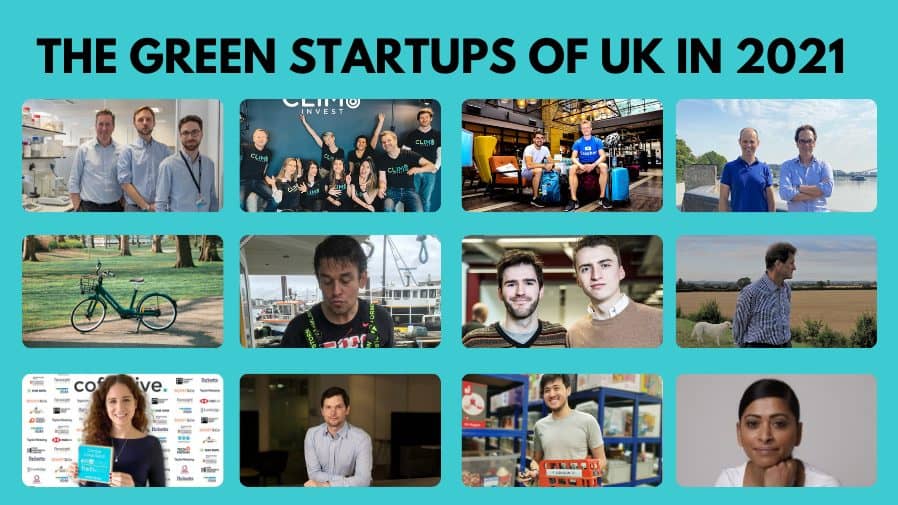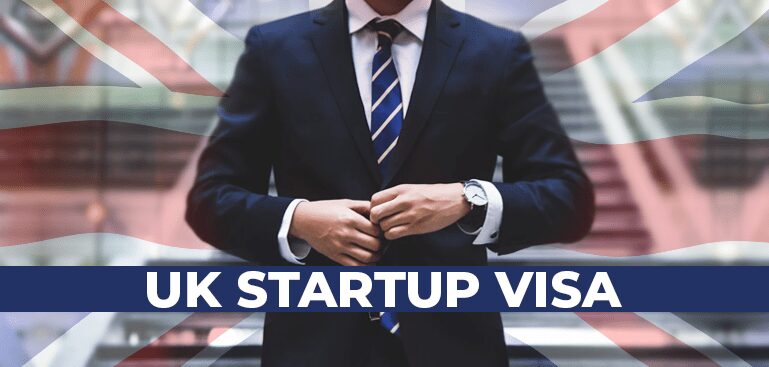Fostering Innovation: The Thriving Startup Ecosystem in the United Kingdom

The United Kingdom has emerged as a global hub for startups, attracting entrepreneurial minds from around the world. With a strong tradition of innovation, access to funding, a skilled workforce, and a supportive regulatory environment, the UK offers a fertile ground for startups to thrive. In this comprehensive article, we will explore the dynamic startup ecosystem in the UK, highlighting its key elements, success stories, challenges, and the factors contributing to its continued growth.
The British Startup Ecosystem: An Overview

The startup ecosystem in the UK has been on a remarkable journey, evolving over the years to become one of the most vibrant in the world. Several factors contribute to the robustness of this ecosystem:
1. Access to Capital:
One of the key drivers of the UK startup scene is access to funding. London, in particular, is home to a multitude of venture capital firms, angel investors, and government-backed initiatives designed to support startups. The availability of investment capital, coupled with a strong financial sector, creates an environment where entrepreneurs can secure funding to turn their ideas into reality.
2. A Skilled Workforce:
The UK’s workforce is known for its high level of education and diverse skill sets. Many universities in the UK produce top talent in fields such as technology, engineering, business, and the arts. This skilled labor pool is an asset for startups looking to hire the best talent.
3. Supportive Regulatory Environment:

The UK government has taken several steps to create a conducive regulatory environment for startups. Initiatives like tax incentives for investors, research and development (R&D) tax credits, and streamlined business registration processes have made it easier for entrepreneurs to set up and grow their businesses.
4. Networking and Collaboration:
The UK boasts a well-connected business community. Incubators, accelerators, and co-working spaces provide platforms for startups to network, collaborate, and gain valuable insights from experienced entrepreneurs. Events, conferences, and meetups further promote networking and knowledge sharing.
5. Thriving Tech Hubs:
Several cities in the UK have emerged as tech hubs, with London leading the way. The “Silicon Roundabout” in East London has become synonymous with technology startups and innovation. Other cities like Manchester, Cambridge, Edinburgh, and Birmingham have also fostered tech communities that attract startups.
Success Stories:

The UK has seen the rise of numerous successful startups that have made a global impact. Here are a few notable examples:
- TransferWise (now Wise): Founded by Taavet Hinrikus and Kristo Käärmann in 2010, Wise revolutionized international money transfers with its peer-to-peer platform. The company has grown into a fintech unicorn, simplifying cross-border payments for millions.
- Revolut: Founded by Nikolay Storonsky and Vlad Yatsenko in 2015, Revolut has disrupted the banking industry with its digital financial services platform. It now boasts millions of users worldwide and continues to expand its product offerings.
- Deliveroo: Founded by Will Shu and Greg Orlowski in 2013, Deliveroo is a food delivery platform that has expanded globally. It connects customers with local restaurants and delivery drivers, offering a convenient dining experience.
- Monzo: Monzo, founded by Tom Blomfield and his team in 2015, has gained popularity as a mobile-only bank. It offers users a range of banking and financial management services through its app.
Challenges Faced by UK Startups:
While the UK startup ecosystem is flourishing, it’s not without its challenges:
- Brexit Uncertainty: The UK’s exit from the European Union introduced economic and regulatory uncertainties that impacted trade, labor mobility, and access to European markets. Startups had to adapt to new rules and regulations.
- Competition for Talent: The demand for skilled tech workers is high, leading to competition for top talent. Startups often compete with established tech giants for the same pool of skilled professionals.
- High Operating Costs: Cities like London are known for their high living and operational costs. While access to capital is abundant, startups need to manage their expenses judiciously to thrive.
- Risk of Market Saturation: In certain sectors, such as fintech and food delivery, there is a risk of market saturation. New startups must differentiate themselves to gain a competitive edge.
The United Kingdom’s Startup Visa: Facilitating Entrepreneurial Dreams

In addition to the various factors contributing to the success of Start Ups in the United Kingdom, the introduction of the Start Up Visa has been a significant development that has further facilitated the growth of the entrepreneurial ecosystem. The Start Up Visa UK, introduced in 2019, offers a pathway for international entrepreneurs with innovative business ideas to establish and grow their Start Ups in the UK.
The key features of the Start Up Visa include:
- Endorsement from Recognized Bodies: To be eligible for the Start Up Visa, entrepreneurs need to secure an endorsement from a recognized endorsing body. These endorsing bodies assess the viability and innovation of the business idea and provide a formal endorsement to the applicant.
- No Minimum Investment Requirement: Unlike some other visa programs, the Start Up Visa does not require a minimum investment amount. This flexibility allows a wide range of entrepreneurs to access the program, regardless of their initial capital.
- Support and Networking: Successful applicants receive not only the right to live and work in the UK but also access to a supportive entrepreneurial ecosystem. They can benefit from networking opportunities, mentorship, and the resources of the UK’s Start Up community.
- Path to Settlement: The Start Up Visa provides a path to settlement (indefinite leave to remain) in the UK after two years for those who meet certain criteria, which includes demonstrating progress in the business.
The Start Up Visa has opened doors for international talent to contribute to the UK’s Start Up landscape, enriching the ecosystem with a diverse range of ideas and expertise. It has become a vital component of the UK’s strategy to remain a global leader in innovation and entrepreneurship, and it aligns with the country’s commitment to welcoming entrepreneurs from around the world.
As the United Kingdom continues to navigate the ever-changing landscape of business and innovation, the Start Up Visa program demonstrates its commitment to fostering entrepreneurial dreams, reinforcing its status as a welcoming destination for Start Ups and innovators from all corners of the globe.
Conclusion:
The United Kingdom has firmly established itself as a leading destination for Start Ups, offering a wealth of resources, funding opportunities, and a supportive business environment. The ecosystem’s success stories and continued growth are a testament to the entrepreneurial spirit of the country. As the UK navigates through economic and regulatory changes, its Start Up ecosystem remains a symbol of resilience and innovation, poised to shape the future of various industries on a global scale. With access to talent, capital, and a culture of entrepreneurship, the UK’s Start Up scene is set to remain a dynamic and influential force in the business world.




